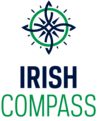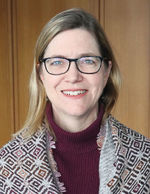Healthcare & Health Science

Healthcare & Health Science
The healthcare field is vast, employing approximately 22 million people in the U.S., with hundreds of job titles and a multitude of fields and career paths. The most familiar segment of the healthcare industry is composed of diagnostic, preventive, remedial, and therapeutic service providers. Being a healthcare provider is well-suited for individuals who have an interest in human science and a strong desire to help others in a direct, “hands-on” way. Provider roles all require additional education and varying degrees of experience in or exposure to the field during college.
Healthcare opportunities, however, are also available in research & development, advocacy & policy, education, business (administration, sales, marketing, operations, finance, human resources), consulting, and communications.
Healthcare settings vary broadly as well and include: hospitals, clinics, medical and dental practices; diagnostic imaging facilities; long term care facilities; hospices; schools; governmental agencies; businesses and other private, public, and nonprofit organizations.
Job Title Examples:
-
Direct Patient Care
- Physician; Physician Assistant (PA); Physical Therapist; Occupational Therapist; Speech & Language Pathologist; Dietitian; Pharmacist; Nurse; Nurse Practitioner; Veterinarian; Dentist; Optometrist; Art Therapist; Music Therapist; Psychiatrist; Social Worker
-
Research & Development
- Biomedical Researcher; Pharmacologist; Research Assistant or Associate; Research or Lab Technician; Clinical Research Coordinator; Lab Technologist
-
Advocacy, Policy & Education
- Health Care Advocate; Client Advocate; Policy Analyst; Program Analyst; Public Health Educator; Teacher; Advisor
-
Business
- Hospital Administrator; Financial Analyst; Human Resources Associate; Business Development Manager; Sales Representative; Products Manager; Operations Associate
-
Consulting
- Analyst; Associate; Consultant
-
Communications
- Technical or Science Writer; Editorial Assistant; Public Relations Specialist
Skills Needed:
- Interpersonal / Compassion
- Communication (oral & written)
- Leadership
- Collaboration
- Technical Knowledge
- Problem-solving & analytical
- Detail-oriented
Find Opportunities
When thinking about relevant experiences, think broadly, both in terms of settings and roles. Working in a summer camp or at a neighborhood community center, for example, are valuable experiences for anyone considering working with children as a healthcare provider, even if the work does not involve healthcare. Shadowing professionals and volunteering in healthcare settings are also useful activities, both for your decision-making as well as your ability to successfully interview for graduate or medical school programs.
Networking

Using IrishCompass, LinkedIn, and myND, ND’s alumni association directory, is the best way to start on the networking front. IrishCompass hosts Healthcare and Clinical Alumni Networks and makes it easy to find providers to shadow and alumni mentors.
Job Databases:
Healthcare organizations typically post directly on their own website’s employment pages so always check sites directly for opportunities.
- Handshake
- USAJobs [Research/Policy/Education]
- Zintellect [Research]
- BioSpace [Research/Education/Business]
- Idealist [Policy/Advocacy/Education]
- AmeriCorps [Gap Year] / National Health Corps
-
Catholic Volunteer Network [Service/Gap Year]
Pre-Health or Pre-Med Summer Experience:
Students planning to become healthcare service providers need to gain service, leadership, clinical and research experience during their undergraduate years to test their interests and to strengthen their applications for graduate or medical school.
- NDBridge (Rising Sophomores) or Summer Fellowships (Rising Juniors & Seniors) -- Center for Social Concerns' Summer Programs
- NAAHP Health Professions Summer Opportunities
- Summer Health Profession Education Programs (SHPEP)
- Pathways to Science (note: this is a broad STEM resource, not just for healthcare)
- Pre-Med Summer Opportunities
- Five Ways to Gain Experience Without Shadowing (AAMC)
-
Pre-Med Internships & Summer Research Opportunities
Research Experience:
Summer opportunities are available in academia, industry, and government. In addition to the databases listed above, consider:
- Association of American Medical Colleges (AAMC) Summer Undergraduate Research Opportunities
- NIH Program in Biomedical Research
- fiNDScience (Summer, Fall, Spring)
- ND College of Science SURF
- Undergraduate Research Opportunities Off-Campus
- Summer Research Opportunities
- Internships & Summer Research Opportunities in the Life Sciences
Industry Timeline
Healthcare & Health Science
For students planning to go directly to Medical or Graduate School, work closely with pre-med/pre-health advisors in either A&L or COS, depending on your major, to ensure timely progress toward your goals and determine timelines for applying. All pre-health/pre-med students should meet with an advisor in The Center for Health Sciences Advising prior to applying. Some students take a gap year or two to strengthen their applications and/or discern their direction.
With the exception of some research fellowships, most recruiting will happen late Fall through summer, closer to when candidates are actually available. Because the bulk of the hiring will happen in the Spring, do not compare yourself to students in other fields or industries. It is important to note that, except for consulting and some business roles, healthcare organizations do not typically participate in on-campus recruiting. Plan to reach out directly to employers.
For summer internships and experiences, the earliest deadlines are late Fall (fellowships). Most deadlines will be in the Spring semester, beginning in January. The majority of deadlines will be mid to late spring semester (February--April) and even early summer (May). Many students, seeking to gain clinical experience, will be volunteering or shadowing and they often work directly with hospitals, clinics, and physicians to arrange these opportunities, typically about 6 weeks before they are available to begin.
The Business of Healthcare
Follow the timeline for the type of work you are most interested in. For consulting positions, for example, job applications begin as early as August with interviewing in September and October. Students interested in management and operations may want to investigate Rotation Leadership Programs, which typically have Fall deadlines. For all business and technology options, plan to investigate options by early Fall (August/September) so you can take full advantage of opportunities with early deadlines.
Applying and Interviewing
Resumes
Your resume will often be the first impression for a potential employer. You want to make sure that your resume is concise, direct, and specific. Ensure that your resume is tailored for the position and for the industry. Highlighting relevant coursework can demonstrate your fit for a particular position. Review our guide on resumes for more information on how to construct one. Please note: students applying to grad school or to a research position may opt to create a Curriculum Vitae (CV)--a more academic version of a resume. Also, students interested in applying for positions with the federal government will need to follow specific guidelines, which vary slightly from a traditional resume.
Cover Letters
A cover letter introduces you to a potential employer. Use the position description to make specific connections between your skills and experience and what the organization is looking for in a candidate. The cover letter should be concise and well-written—if a potential employer reads your cover letter and is intrigued, they will then read your resume. Your cover letter should not repeat your resume verbatim, but enhance it. Together the cover letter and resume can help land you an interview. Review our guide on cover letters for more information on how to construct one. Always have someone review your cover letter (and resume!) for typos and clarity.
Interviewing
Most interviews will contain a mixture of resume based questions (questions about your past experience) and behavioral based questions (your ability to handle prospective situations at work. Most positions will begin with an interview that has a mix of these questions. Review our guide on common interview questions. Students interviewing for medical school may encounter a specific type of interview: the Multiple Mini-Interview format. For more information about MMIs, please schedule an appointment with the healthcare career counselor.
Preparation is extremely important for interviews. Research the company/organization, current and previous projects they’ve worked on, and even the people that you’re interviewing with. This will not only help provide talking points but will show your knowledge and genuine interest in the position. Utilize our resources on how to best prepare yourself to excel in your interview.
Online Resources
Direct Patient Care Career Guides
- Allied Health Careers
- Allied Health Professions
- Dental Care
- Healthcare Provider Jobs
- Medicine
- Nursing
- Optometry
- Pharmacy
- Sports Medicine
- Veterinary Medicine
Research Career Guides
Policy/Advocacy/Education Career Guides
The Business of Healthcare
Dentistry
- American Dental Association
- American Dental Education Association
- American Society of Dentist Anesthesiologists
- American Student Dental Association
Dietetics & Nutrition
Physical & Occupational Therapy
Medicine
- American Academy of PAs
- American Medical Association
- American Medical Student Association
- Association of American Medical Colleges
- National Medical Association Student Doctor Network
- Student National Medical Association
- American Association of Colleges of Osteopathic Medicine
- Student Osteopathic Medical Association
Nursing
- American Nurses Association
- National Association of Hispanic Nurses
- National Black Nurses Association
- National Coalition of Ethnic Minority Nurse Associations
- National Student Nurses Association
Optometry
Pharmacy
Public Health
- Association of Schools and Programs in Public Health
- American Public Health Association
- Society of Public Health Education
Research
Science Policy
Campus Resources
Career Counselor:

Karen Manier
Assistant Director, Healthcare
Schedule an Appointment
Student Clubs:
- Active Minds activemi@nd.edu
- Aging with Grace agewell@nd.edu
- Biology Club bioclub@nd.edu
- Camp Kesem ckesem@nd.edu
- Compassionate Care in Medicine (CCIM) ccimnd@nd.edu
- First Aid Services Team fast@nd.edu
- Global Medical Brigades ndgmb@nd.edu
- Global Public Health Brigades gphb@nd.edu
- GlobeMed globemed@nd.edu
- Harper Cancer Research Institute Society hcris@nd.edu
- Healthcare & Biotechnology Club mbahbc@nd.edu
- Love Your Melon ndlym@nd.edu
- Mending Minds mendmind@nd.edu
- Multicultural Pre-Medical Society premed@nd.edu
- Neuroscience Club neurosci@nd.edu
- Notre Dame Medical Observers nhme@nd.edu
- Partners in Health Engage at ND pihengag@nd.edu
- Pre-Dental Society predent@nd.edu
- Pre-Physician Assistant Club paclub@nd.edu
- Pre-Professional Society medinfo@nd.edu
- Pre-Veterinary Medical Association ndpv@nd.edu
- RareND rarend@nd.edu
- Social Justice in American Medicine sjam@nd.edu
- Society of Physics Students
- Timmy Global Health timmynd@nd.edu
- WishMakers mawnd@nd.edu
Employer Examples:
- Abbvie
- Cardinal Health
- CDC
- DaVita
- Eli Lilly
- Johnson & Johnson
- GE Healthcare
- Huron Consulting
- Massachusetts General Hospital
- NIH
- Oak Street Health
- Regeneron
- Stryker
Join Handshake:
Personalize your feed, explore your curiosities, and get updates that matter to you. Handshake is a dynamic system that works to match students with the most relevant resources and opportunities offered by our office including:
- Access to personalized job recommendations – This is based on major, career interests, and profile information such as skills and experiences. When students fill out their profile, they’ll be able to see jobs and internships that match their interests and skills.
- Ability to schedule one–on-one counseling appointments – Counseling appointments are able to be scheduled through Handshake and held virtually via Zoom.
- Ability to Interact with employers – Students can research contact information for local and national employers. Employers can also message students with opportunities and information.
- Connect with students across the country - Students can interact with their peers through messaging, get tips and advice, as well as network.
- Search for and apply to open positions - On Handshake, students can see jobs and internships posted specifically for them as well as employers actively recruiting from Notre Dame.